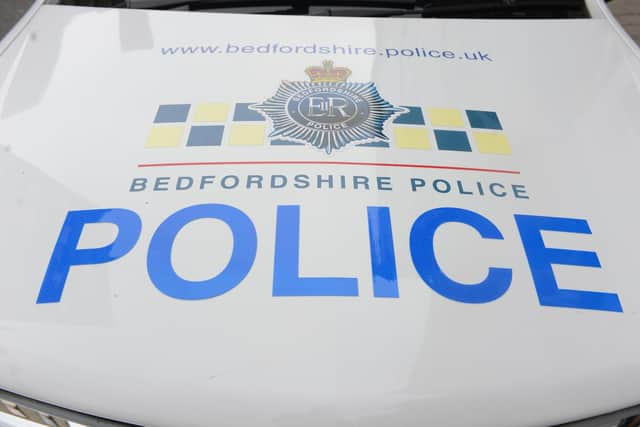Less tolerance and fewer holidays abroad could be behind increase of 999 calls to Bedfordshire Police
and live on Freeview channel 276
Less tolerance and fewer people travelling abroad could be reasons for the increase of calls to Bedfordshire Police, a meeting heard.
At last week's Delivery & Beating Crime Meeting (Thursday, November 25), Bedfordshire's police and crime commissioner, Festus Akinbusoye said the control room was a "key" area as it is a point of contact for the public.
Advertisement
Hide AdAdvertisement
Hide AdHe wanted to know what is, and could, be done to improve its call handling performance.


Bedfordshire Police's deputy chief constable, Trevor Rodenhurst, said that the Force's control room used to receive an average of 9,000 999 calls a month.
"In the preceding three months leading up to October we went up to an average of 10,000."
He added that in October there were nearly 11,000 999 calls into the control room.
Advertisement
Hide AdAdvertisement
Hide Ad"So that's a significant shift in demand on our control room and that's at a time when we are not up to strength," he said.
The PCC asked if the reason for this increase was known.
Garry Forsyth, the chief constable replied that the increase is not unique to Bedfordshire Police and is something of a "national phenomenon".
"I don't know if it's because there are more people in the country than normally there would be," he said.
"I know my elderly neighbours used to spend the winter in Spain, and they haven't done for the last two winters and so there'll be a lot more people like that as well and so there's more people in the country.
Advertisement
Hide AdAdvertisement
Hide Ad"I think one of the consequences we see coming out of the pandemic is there's a lot less tolerance of people, and people are phoning emergency services quicker," he said.
"I don't doubt as well that some of the failure demand in the ambulance service will be coming into us as well, an increase in mental health demand as a result of pressure on services is evident, as well increased highways, missing people, suicidal people, etc., all of that we are seeing consequently as a result of the pandemic," he added.
The PCC asked: "Could the reason why we're seeing such high numbers coming through to nines is because we don't have enough people on delivery of 101 [calls]?"
"Some of it might be failure demand on 101," the chief constable replied.
Advertisement
Hide AdAdvertisement
Hide Ad"So when they can't get through on 101 they phone nines, they're immediately cut off nines and redirected.
"We prioritise the three nines over the 101, we still manage to answer a high proportion of the 101 calls even despite those numbers within 10 seconds.
"We'll never have an abandoned three nines because even if we can't answer it it will go somewhere else," he said.
The DCC said that the recorded in a queue message for 101 calls has just been updated to tell the caller at the outset how long a caller will have to wait before their call is answered, and gives the option of a callback instead of hanging on.
Advertisement
Hide AdAdvertisement
Hide Ad"That has significantly reduced the average wait times for 101s," he said.
"Yesterday [Wednesday, November 24] it was just over two minutes, so that is a reduction for 101s by providing an alternative provision.
"On the same day last month we had about 40 people who took call back [option], yesterday it was 132, which is diverting demand," he said.
The meeting was told that other methods to improve call handing wait times include updating the webchat facility, and in the long-term, sophisticated software could be used to route calls to the right place without having to go through the control room.